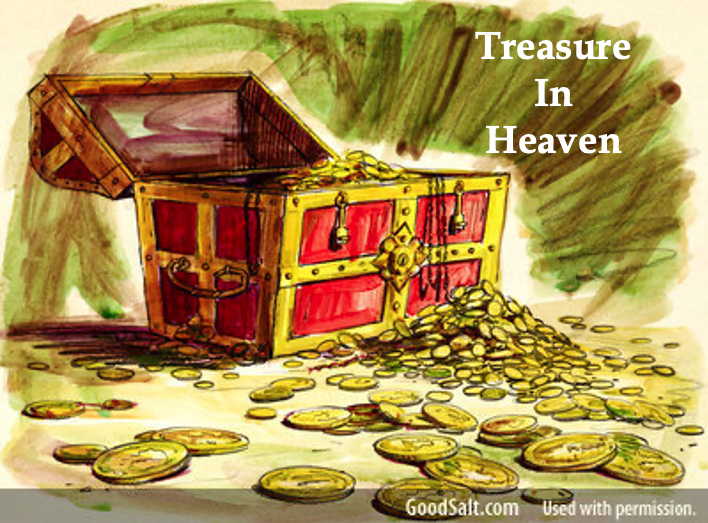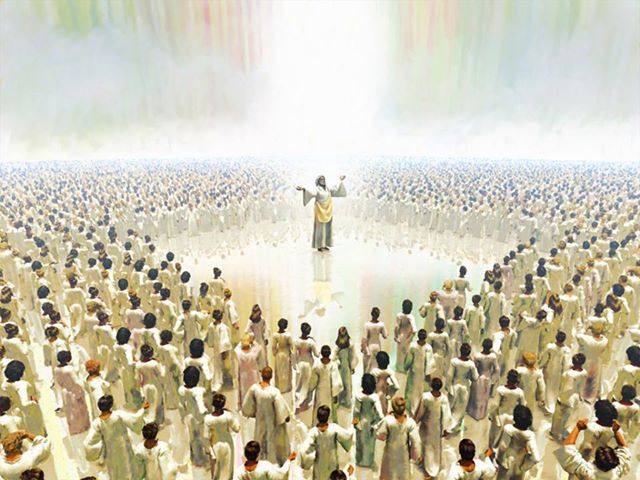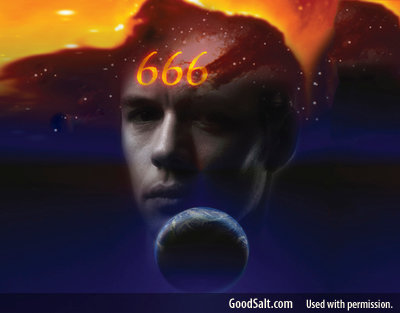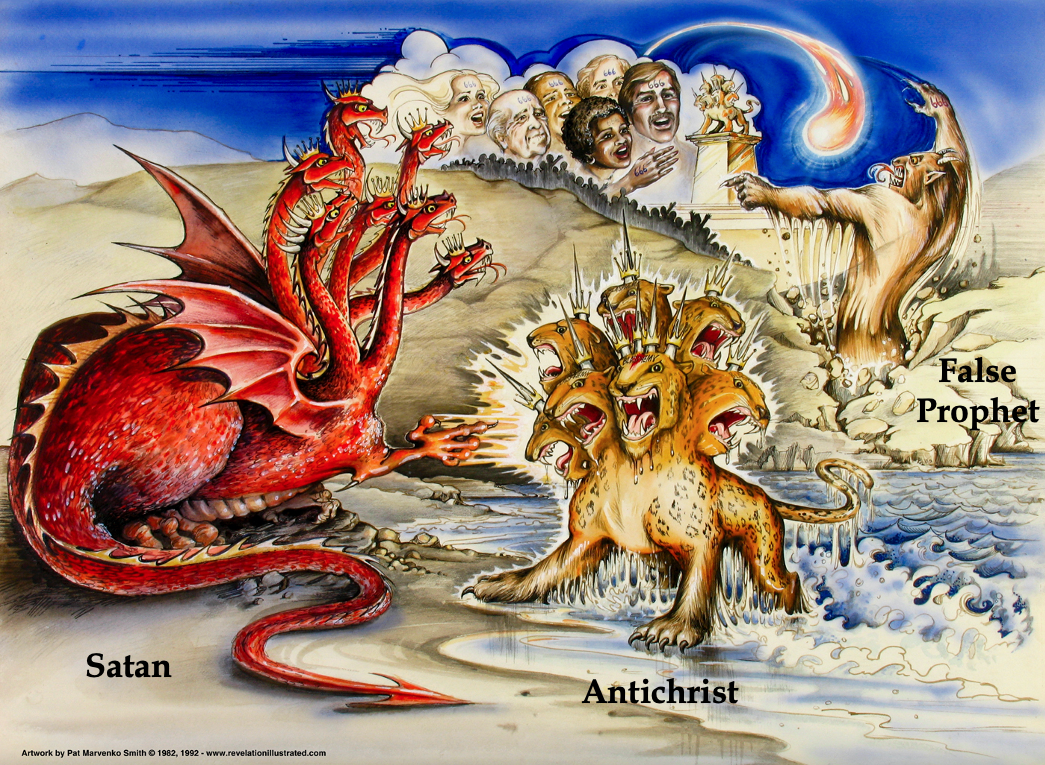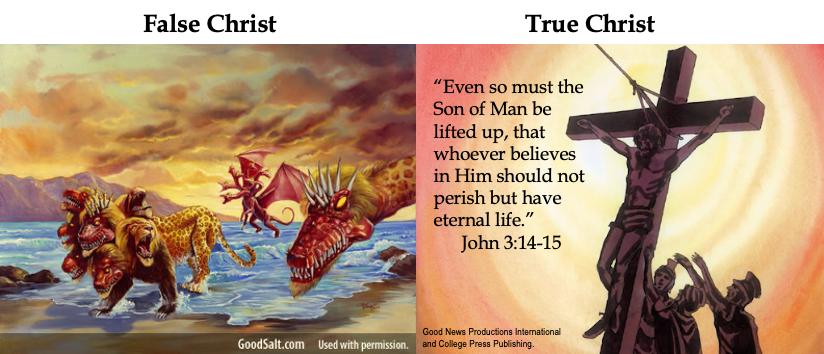“And another angel came out of the temple, crying with a loud voice to him who sat on the cloud, ‘Thrust in your sickle and reap, for the time has come to reap for the harvest of the earth is ripe.’” Revelation 14:15
Growing up in the Midwest, I can remember singing the stirring words of “The Battle Hymn of the Republic” in elementary school. Since the writing of this song by Julia Ward Howe in 1861, many people have sung this song unaware that its inspiring word pictures originated from the book of Revelation. Some of the powerful words contained in this song are based in part on Revelation 14:14-20. These words summon God’s people to spiritual battle to spread the gospel around the world and at the same time they also warn nonbelievers of coming judgment when God’s wrath will be poured out upon the wickedness of the earth. 1
After receiving revelation about Satan’s two wild beasts (the World Ruler and the False Prophet) who will triumph during the last half of the Tribulation period (13:1-18), the apostle John receives revelation that describes both what happens to those who refuse the mark of the beast (14:1-5) and what happens to those who receive the mark of the beast (14:6-20). Following the four announcements that will provide motivation for believers to remain faithful to God and resist the beasts during the last half of the Tribulation period (14:6-13), John receives a vision (14:14-20) that provides background information about the final judgments to be recorded in the last chapters of the Tribulation period (Revelation 15-19). These coming judgments are compared to a grain harvest (14:14-16) which preview God’s bowl judgments (Revelation 15-16)and a grape harvest (14:17-20) which previews the battle of Armageddon (Revelation 16:13-21; 19:19-21). 2
“Then I looked, and behold, a white cloud, and on the cloud sat one like the Son of Man, having on his head a golden crown, and in his hand a sharp sickle.” (Revelation 14:14). The phrase “And I looked” (kai idou) introduces a new scene, and a transition to another subject. 3 John sees someone “like the Son of Man” sitting on “a white cloud.” Many interpreters understand this to be the Lord Jesus Christ because “Son of Man” is a Messianic title for Him (cf. Daniel 7:13-14; Mark 13:26). 4 However, it is better to understand the identity of this being as an angel who represents “the Son of Man” because he is Christ’s agent in this judgment. In addition, verse 15 refers to “another angel” and the closest antecedent for “another” is the previous character mentioned here in verse 14. 5
The “white cloud” upon which this angel sits represents heaven’s purity of the judgments about to take place on the earth. This judgment is fair and just because “the harvest of the earth is ripe” (cf. 14:15). 6 The “golden crown” on this angel’s head signifies that this angel cannot fail in carrying out this judgment on Christ’s behalf. 7 Since the “sickle” in his hand is “sharp,” the angel will be able to do his work speedily and fully in carrying out the bowl judgments. 8 The “sickle” here is an instrument to inflict judgment and death on those who received the mark of the beast and rejected God. The word “sickle” is mentioned seven times in these verses (14:14-19) to emphasize the impending doom for those who reject the Lord during the last half of the Tribulation period. As a tool used to harvest grain in an agrarian culture, the sickle is a very appropriate image for God’s judgment because a “harvest” of people’s wickedness during their lives on earth is in view (14:15). 9
“And another angel came out of the temple, crying with a loud voice to him who sat on the cloud, ‘Thrust in your sickle and reap, for the time has come to reap for the harvest of the earth is ripe.’” (Revelation 14:15). A second “angel” comes out of the heavenly “temple,” urgently “crying with a loud voice” to the first angel “who sat on the cloud,” to “thrust in” his “sickle and reap… the harvest” which was “ripe” or past its peak because the earth-dwellers were withered and spiritually lifeless, and ready for the bowl judgments. The use of the Greek word for “ripe” (exērainō), which means to become “dried up” or “withered,” 10 suggests that the condition of the wicked world during the last half of the Tribulation had become “overripe” with evil. 11 Three previous angels had announced that judgment was coming (14:6-11). This angel says it is time to execute the judgment without delay. 12
“So, he who sat on the cloud thrust in his sickle on the earth, and the earth was reaped.” (Revelation 14:16). Like grain being cut down by the harvester, “the earth was reaped” with swift and devastating judgments during the bowl judgments. The conciseness of this verse emphasizes the suddenness of this judgment. 13 Like an overripe grain field that requires an immediate response by the harvester, the evil of humankind will call for quick and decisive justice. While God is patient and merciful in giving people an opportunity to get right with Him, the time will come near the end of the Tribulation when the world experiences the agony of His “terrible, swift sword.” 14
The fact that God waited until the harvest of humanity’s wickedness was overripe (14:15-16), reminds us that God is patient, and in His mercy, He has postponed judgment for as long as possible. The Bible tells us, “The Lord is not slack concerning His promise, as some count slackness, but is longsuffering toward us, not willing that any should perish but that all should come to repentance.” (2 Peter 3:9). God has delayed His coming for His church, so people in this Church Age may have the opportunity to get right with Him. The word “repentance” (metanoia) means “a change of mind.” 15 God is giving people the opportunity to change their minds about whatever is keeping them from believing in Jesus Christ for His gift of eternal life, so they can then believe in Him, because the Lord is “not willing that any should perish” in hell.
What about you, my friend? Do you know where you will go after death? God does not want you to “perish” forever in hell. Please keep in mind that hell is a real place. Jesus described “hell” as a place “where their worm does not die, and the fire is not quenched” (Mark 9:47b-48). In this brief statement by God the Son, we learn three things: 16
1. Jesus considered hell to be a real place, not a figment of one’s imagination. Many people today deny the existence of hell, but their claims are contrary to the authoritative teaching of Jesus Christ.
2. Hell is a place of agonizing suffering, both inwardly and outwardly. The “worm” signifies the source of the internal pain – like the gnawing of a parasite within one’s body. The “fire” symbolizes the source of the external suffering, whereby one’s flesh burns forever without any decrease in the excruciating pain.
3. Christ also teaches that hell is eternal. Some teach that nonbelievers are “annihilated” after death, but Jesus says their “worm does not die” and “the fire is not quenched.” The torment of hell, therefore, is never-ending. What makes the good news of Jesus Christ so good is that the bad news of hell is so bad!
What is the good news of Jesus? Through His death and resurrection nearly two thousand years ago (cf. I Corinthians 15:3-6), Christ made it possible for us to receive eternal life as a gift and escape future judgment for our sins in hell if we would simply believe in Him alone. Christ said, “Most assuredly, I say to you, he who hears My word and believes in Him who sent Me has everlasting life, and shall not come into judgment, but has passed from death into life.” (John 5:24). What does Jesus say you must do to have eternal life and be delivered from God’s future judgment of our sins? He says you must “hear” and “believe.” All that Jesus requires for everlasting life is believing, not behaving.
Some of you have been brought up in religion which says you must do this or not do that to earn God’s eternal life and forgiveness. But this is contrary to the authoritative word of Jesus Christ. According to Jesus, when a person “hears” His Word and “believes” what He says, Jesus says he or she “has everlasting life.” That means right now, not after you die. How long is everlasting life? It is forever! It cannot be lost or taken away from you (John 10:28-29).
Next, Christ guarantees that you “shall not come into judgment.” That is a promise and God does not break His promises. A believer in Jesus Christ will not be judged for his or her sins in the future because Christ was already judged for our sins when He died in our place on the cross. Such a one has “passed from death into life.” That means death is behind us, not before us. It is past, not present or future.
If you have not yet believed Jesus’ promise of eternal life and a judgment-free future, you can simply take Him at His word right now when He says, “he who hears My word and believes in Him who sent Me has everlasting life, and shall not come into judgment, but has passed from death into life.” If you believed Jesus promises in this verse, you now have “everlasting life” and “shall not come into judgment” for your sins.
Notice that John 5:24 affirms the equality of the Father and the Son. He who hears Jesus’ Word and believes in the Father who sent Christ, has everlasting life. To believe in the Father, you must hear and believe in Christ since the Father sent Jesus that people might believe in Him. To believe in the Father was to believe in Christ because Jesus is the perfect reflection of the Father. Believing in the Son is one way to honor the Father who sent Him (cf. 5:23).
God wants to use you now to share this good news with your family and friends before it is too late for them to get right with God (Mark 16:15; Acts 10:24-48; 16:23-34). When you believed in Jesus, God gave you His Holy Spirit to live inside you and help you grow in your new relationship with Christ (John 7:37-39; Romans 8:11). The Holy Spirit will give you the power or ability to tell others the truth about Jesus so they can believe in Him and have everlasting life both now on earth and in the future with Him in His heaven forever (Acts 1:8; cf. Revelation 21-22).
Prayer: Heavenly Father, we praise You for this graphic description of Your upcoming bowl judgments at the end of the Tribulation period which are compared to a grain harvest. These terrible judgments remind us that You are holy and just, and You will one day pour out Your terrible wrath upon those who have rejected You during the last half of the Tribulation period. Right now, we want to express our eternal gratitude for Your mercy which led You to postpone this judgment so we could come to faith in Jesus and receive His gift of eternal life. Thank You, Lord God, that Your word guarantees we shall not come under Your judgment for our sins in the future because Christ already did when He died in our place on the cross. Please open doors for us to share this good news of Jesus with those who are perishing without Him, before it is too late for them. To You Lord God be all the glory for the great and mighty things You have done and are going to do. In the matchless name of Jesus Christ, we pray. Amen.
ENDNOTES:
1. Charles R. Swindoll, Insights on Revelation (Swindoll’s Living Insights New Testament Commentary Book 15, Tyndale House Publishers, Inc., 2014 Kindle Edition), pg. 270.
2. Ibid., pg. 271.
3. Tom Constable, Notes on Revelation, 2017 Edition, pg. 162.
4. Ibid.; Swindoll, pp. 271-272; John F. Walvoord, The Bible Knowledge Commentary Epistles and Prophecy, Editors John F. Walvoord and Roy B. Zuck (David C. Cook, 2018 Kindle Edition), locations 5895 to 5901.
5. Bob Vacendak; Robert Wilkin; J. Bond; Gary Derickson; Brad Doskocil; Zane Hodges; Dwight Hunt; Shawn Leach, The Grace New Testament Commentary: Revised Edition (Grace Evangelical Society, Kindle Edition, 2019), pg. 1553; Constable, pg. 162 cites David E. Aune, Revelation 6-16 World Biblical Commentary series (Nashville: Thomas Nelson, 1998), pg. 849.
6. Vacendak, pg. 1553.
7. Ibid.
8. Constable, pg. 162.
9. Tony Evans, CSB Bibles by Holman, The Tony Evans Study Commentary (B & H Publishing Group, Kindle Edition 2019), pg. 2404.
10. Walter Bauer, A Greek-English Lexicon of the New Testament and Other Early Christian Literature: Third Edition (BDAG) revised and edited by Frederick William Danker (Chicago: University of Chicago Press, 2000 Kindle Edition), pp.684-685.
11. Swindoll, pg. 273.
12. Constable, pg. 162.
13. Ibid., pg. 163 cites Robert L. Thomas, Revelation 8-22: An Exegetical Commentary (Chicago: Moody Press, 1995), pg. 221.
14. Swindoll, pg. 274.
15. Bauer, pg. 640.
16. These three observations from Mark 9:47-48 are adapted from Tony Evans, pp. 1611-1612.


